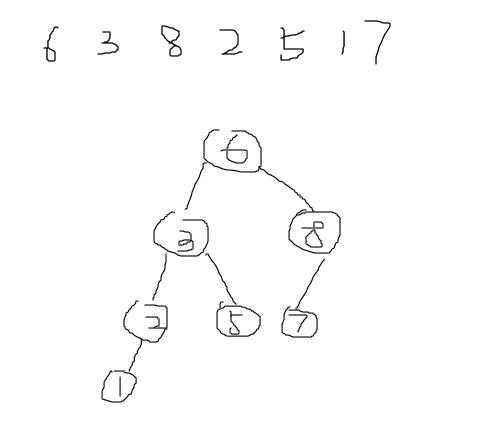数据结构二叉搜索树复习及创建求高度代码实现
Posted 沉默的小宇宙
tags:
篇首语:本文由小常识网(cha138.com)小编为大家整理,主要介绍了数据结构二叉搜索树复习及创建求高度代码实现相关的知识,希望对你有一定的参考价值。
二叉搜索树(Binary Search Tree)的一些关键特点:
1)根节点 > 左孩子
2)根节点 < 右孩子
3)中序遍历是一个递增排序的数据
4)所有数据不能重复
typedef struct node
{
int data;
struct node *left;
struct node *right;
}NODE_T,*PNODE_T;
typedef struct
{
PNODE_T root;
}TREE_T,*PTREE_T;
/*
先序遍历:根->左->右
*/
void preorder(PNODE_T pNode)
{
if(NULL != pNode)
{
printf(" %d",pNode->data);
preorder(pNode->left);
preorder(pNode->right);
}
}
/*
中序遍历:左->根->右
*/
void inorder(PNODE_T pNode)
{
if(NULL != pNode)
{
inorder(pNode->left);
printf(" %d",pNode->data);
inorder(pNode->right);
}
}
/*
后序遍历:左->右->根
*/
void postorder(PNODE_T pNode)
{
if(NULL != pNode)
{
postorder(pNode->left);
postorder(pNode->right);
printf(" %d",pNode->data);
}
}
void insert(PTREE_T pTree,int value)
{
PNODE_T pNewNode = malloc(sizeof(NODE_T));
pNewNode->data = value;
pNewNode->left = NULL;
pNewNode->right = NULL;
if(NULL == pTree->root)
{
pTree->root = pNewNode;
}
else
{
PNODE_T pNodeTmp = pTree->root;
while(NULL != pNodeTmp)
{
if(value < pNodeTmp->data) //左边
{
if(NULL == pNodeTmp->left)
{
pNodeTmp->left = pNewNode;
break;
}
else
{
pNodeTmp = pNodeTmp->left;
}
}
else //右边
{
if(NULL == pNodeTmp->right) //右边为空
{
pNodeTmp->right = pNewNode;
break;
}
else
{
pNodeTmp = pNodeTmp->right;
}
}
}
}
}
/*求一棵树的高度*/
int get_height(PNODE_T pNode)
{
if(NULL == pNode)
{
return 0;
}
else
{
int max=0;
int left_height = get_height(pNode->left);
int right_height = get_height(pNode->right);
max = left_height > right_height ? left_height:right_height;
return max+1;
}
}
void test_binary_tree(void)
{
int ary[7] = {6,3,8,2,5,1,7};
TREE_T tree;
tree.root = NULL;
debug_set_level ( DBG_LEVEL_ALL );
for(u8 i=0;i<7;i++)
{
insert(&tree,ary[i]);
}
DEBUG_INFO("preorder test !\\n");delay_ms(10);
preorder(tree.root); // 5 6 8 9 7 10
printf("\\n");
DEBUG_INFO("inorder test !\\n");delay_ms(10);
inorder(tree.root); // 8 6 9 5 10 7
printf("\\n");
DEBUG_INFO("postorder test !\\n");delay_ms(10);
postorder(tree.root); // 8 9 6 10 7 5
printf("\\n");
DEBUG_INFO(" end!\\n");
DEBUG_INFO("the tree height is %d!\\n",get_height(tree.root));
while(1)
{
}
}测试数据:

验证结果:
[INFO][bsp_test.c #466][@test_binary_tree]:preorder test !
6 3 2 1 5 8 7
[INFO][bsp_test.c #469][@test_binary_tree]:inorder test !
1 2 3 5 6 7 8
[INFO][bsp_test.c #472][@test_binary_tree]:postorder test !
1 2 5 3 7 8 6
[INFO][bsp_test.c #475][@test_binary_tree]: end!
[INFO][bsp_test.c #477][@test_binary_tree]:the tree height is 4!
By Urien 2021/11/7
以上是关于数据结构二叉搜索树复习及创建求高度代码实现的主要内容,如果未能解决你的问题,请参考以下文章